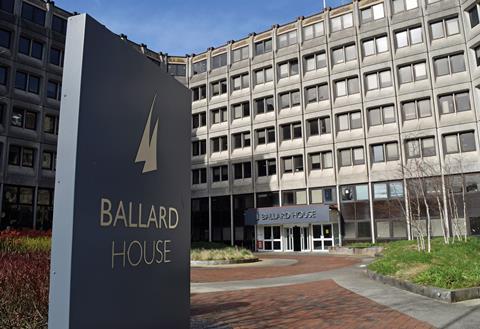The celebrated mathematician and physicist Isaac Newton once remarked that while he did not know what he may appear to the world, to himself he seemed to have been ‘only like a boy playing on the seashore… whilst the great ocean of truth lay all undiscovered before [him]’. In legal practice, even the most experienced lawyers would recognise this. The law is so huge that most practitioners focus predominantly on their own areas with the rest being like a pre-death version of Hamlet’s ‘undiscovered country from whose bourn/No traveller returns’.

For many local government lawyers, the Sexual Offences (Amendment) Act 1992 may be such an instance. For this arose in an unusual case where the interlocutory proceedings have been extensive. This was the judgment of HHJ Paul Matthews (sitting as a High Court judge) on 30 September 2022 in Plymouth City Council v ABC [2022] EWHC 2426 (Ch). The substantive proceedings (issued on 11 June 2021) concerned claims that the defendant (who had previously been employed by the council in its special educational needs and disability department), shortly before she was due to be made redundant, downloaded personal data and confidential information otherwise than for the purpose of carrying out her duties, and without the claimant’s consent. While the court has not yet decided on the merits of any of the allegations made against the defendant, she had given certain undertakings to dispose of an application restraining her from using certain information said to be confidential to the claimant council.
The defendant had previously made two applications for anonymity in the proceedings. Both were refused. The second because there had been no sufficient change in circumstances but also on the merits. She submitted that the present proceedings were related to earlier proceedings between her and her former partner, and that she wished to refer to her history as a survivor of domestic abuse because: (i) it was relevant to her state of mind at the time of the allegations made by the claimant; and (ii) the claimant’s knowledge of such matters was relevant to its treatment of her as an employee and its conduct in bringing the claim against her. She sought to reverse the court’s anonymity decision contending that the 1992 act required it and the judge had been wrong not to order it.

The 1992 act by section 1(1) provides that: ‘Where an allegation has been made that an offence to which this act applies has been committed against a person, no matter relating to that person shall during that person’s lifetime be included in any publication, if it is likely to lead members of the public to identify that person as the person against whom the offence is alleged to have been committed.’ Section 1(3A) indicates that the matters relating to the alleged victim of the relevant offence include, in particular, the person’s name, address, school or other educational establishments, place of work and any still or moving picture of the person. Section 2 lists the applicable sexual offences against the law of England and Wales.
As to the merits of the defendant’s contention about the applicability of the 1992 act to the council’s proceedings against her, the judge noted the decision in R (Press Association) v Cambridge Crown Court [2013] 1 WLR 1979 where the Court of Appeal held that the act did not confer power on the court to order that any party to proceedings should be anonymised. Instead, the act made it a criminal offence to identify certain persons in any publication thereafter. However, HHJ Matthews said that there is an important question as to whether the 1992 act applies where there are no criminal proceedings in which an allegation of a relevant offence has been made. The natural meaning of section 1(1) ‘is to refer to the case of a person who is charged with having committed such an offence against another person, and criminal proceedings being instituted’. However, he remarked that it ‘can also be read as applying to a case where one person has accused another, whether in civil proceedings or indeed out of court, of having committed such an offence’.
In Birmingham City Council v Riaz [2016] 1 FLR 797, where a local authority applied for an existing reporting restrictions order to be extended to cover the whole life of a victim of sexual exploitation by the defendants, Keenan J accepted in broad terms the general principles advanced by the local authority, including that if the matter had been within the criminal sphere lifetime anonymity would be available to the alleged victim. However, while Keenan J concluded that he should make a whole-life reporting restrictions order, he did not rely on the 1992 act as already providing that protection. Consequently, HHJ Matthews considered that ‘“allegation” in section 1(1) of the 1992 act refers to a formal allegation made in criminal proceedings, that is, where a criminal charge has been made’. He accordingly considered that the act does not apply in the present case.
As to the scope of the statutory requirement, the court did not accept the defendant’s argument that the conduct of the defendant’s ex-partner ‘is relevant both to her own state of mind at the time of the acts complained of by the claimant, and to the claimant’s state of mind at the time of bringing these proceedings’. For the substantive claim ‘has nothing whatever to do with the conduct of the defendant’s ex-partner during their earlier domestic relationship’. It instead concerned the defendant’s actions during the closing stages of her employment with the claimant ‘and concerns alleged breaches of duties owed under her contract of employment to her employer’.
Nicholas Dobson writes on local government, public law and governance































No comments yet